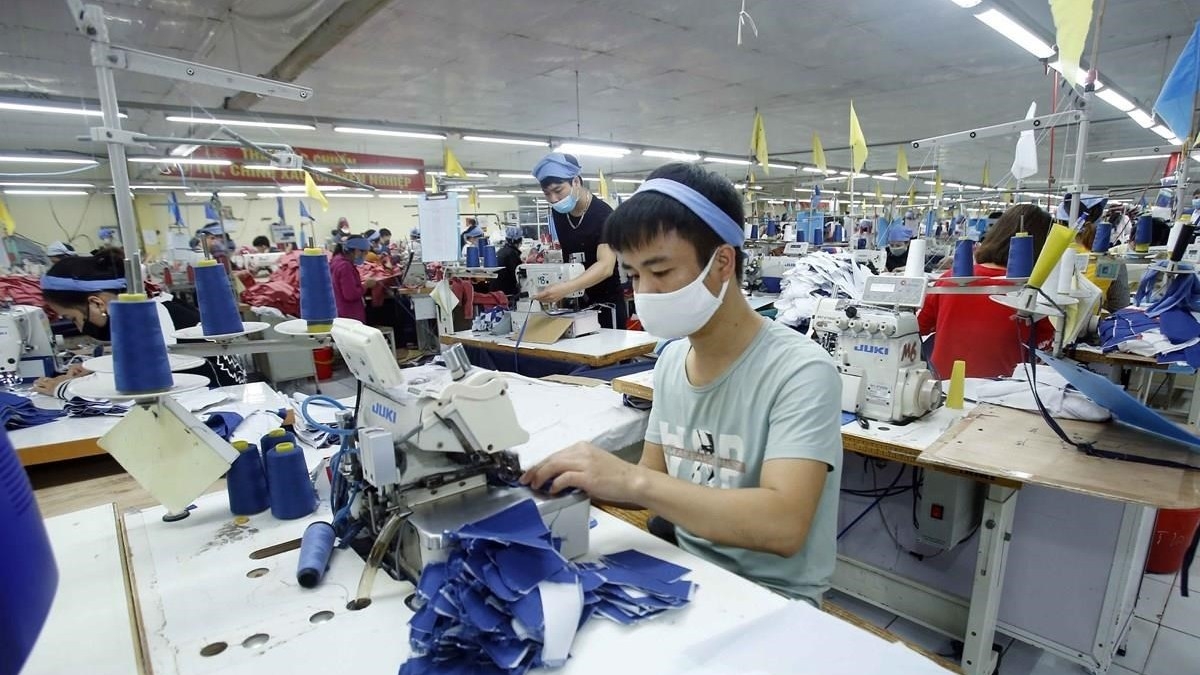Vietnam's garment sector needs a boost to realise full-year targets
ABO/NDO - Vietnam’s garment exports in the first seven months of 2021 reached nearly US$23 billion, equivalent to 59% of the full-year target, up 20.5% over the same period of 2020 and 4.47% over 2019 before the onset of the pandemic.
Despite recording impressive results, garment manufacturers are still facing a great deal of challenges in maintaining their operation and exports as localities are imposing social distancing measures in different ways, which has almost paralysed the supply of materials for production and transport of final goods for export.
 |
| A factory of Tien Hung Garment Company in Hung Yen Province (Photo: VNA). |
Hundreds of enterprises have had to close, suspend their operations, and face the pressure of rising production costs, while securing funds to pay wages and compensate their partners due to delays in delivery.
The sector is facing significant challenges from disrupted supply chains due to difficulties in the movement of goods between domestic localities and from foreign countries into Vietnam.
Another risk comes from the broken supply of workers as distancing measures in manufacturing have forced workers to leave industrial centres for their rural homes in large numbers, resulting in a rate of just 65% returning to work when normal operation resumes.
In the meantime, the third and fourth quarters are usually the sector’s prime production times. Enterprises will have to make great efforts to maintain jobs for their nearly 3 million workers so as to avoid negative social effects from the COVID-19 pandemic.
In order to realise the export goal of US$39 billion, in addition to their own efforts, enterprises are looking for the government to further accelerate vaccination, especially for garment workers, so as to avoid disruptions to production chains and ensure a sufficient workforce for large orders in the final months of the year.
They are also expecting the government to increase overtime limits in order to fulfil orders in a timely manner, without breaching labour laws.
Enterprises have also proposed that the government scrap the value added tax on domestic fabric used for manufacturing exports, reduce road fees, delay charging seaport infrastructure fees in Hai Phong and Ho Chi Minh City, lower or waive corporate income tax and land rent, and extend debt repayments in 2020 and 2021, among others.
Such timely and substantive support measures are expected to create a boost for the garment sector to overcome difficulties and fulfil the set targets.
(Source: NDO)
 về đầu trang
về đầu trang







